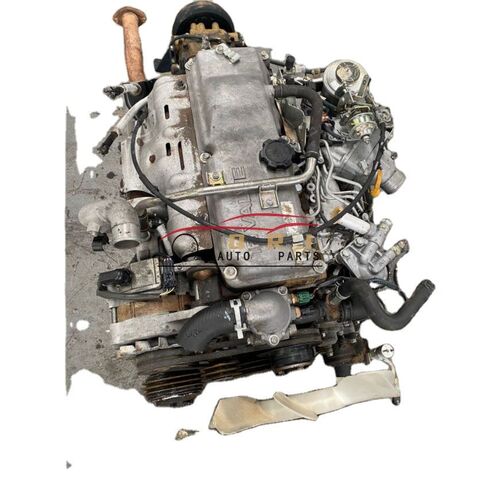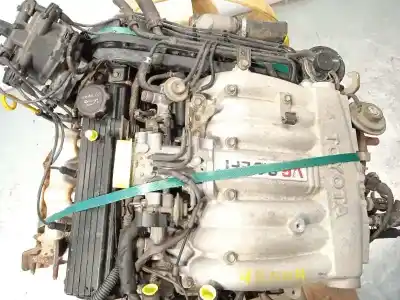A Deep Dive into the Interior and Exterior of the Toyota RunX RSI
A Deep Dive into the Interior and Exterior of the Toyota RunX RSI
Blog Article
Explore High Quality and Worth: Your Overview to Getting a Previously Owned Engine
When considering the purchase of a second-hand engine, recognizing the intricate equilibrium between high quality and worth is critical. A detailed assessment of engine dependability, condition, and background is vital to make sure an audio investment. By conducting correct examinations and study, possible purchasers can browse the intricacies of the marketplace better. However, the nuances of service warranty choices and rates methods can considerably influence the general decision-making procedure. As you ponder these aspects, one concern continues to be: what specific components will ultimately lead your choice in this critical investment?
Understanding Engine Kind
When thinking about the purchase of a used engine, comprehension of the numerous engine kinds is necessary for making an informed choice. Engines can typically be classified right into two primary kinds: interior combustion engines and electric engines. Interior burning engines, which include gas and diesel variants, count on the combustion of fuel to create power. Gasoline engines are typically lighter and rev greater, making them appropriate for efficiency cars, while diesel motor are renowned for their torque and gas performance, usually preferred in sturdy applications.
On the other hand, electrical engines utilize electrical energy saved in batteries to power the vehicle, offering a cleaner option with fewer relocating parts and minimized maintenance needs. Within these categories, there are further distinctions, such as four-stroke versus two-stroke internal combustion engines, and various electrical motor configurations.
Comprehending these distinctions is critical, as they impact efficiency, compatibility with existing vehicle systems, and lasting functional prices. By acquainting oneself with the various sorts of engines offered, possible purchasers can better examine their demands and make options that line up with their automobile's demands and their personal choices.

Assessing Engine Condition
A complete assessment of engine problem is paramount for anybody taking into consideration the acquisition of a used engine. Start with a visual examination; look for signs of oil leakages, corrosion, or any kind of physical damages to the engine block. A clean engine is commonly a sign of great maintenance methods, while excessive grime may recommend overlook.
Next, assess the engine's parts, including the timing belt, gaskets, and seals. Seek wear and tear, as these parts can be expensive to change. Additionally, analyze the engine installs, as damaged places may cause resonances and additional mechanical issues.
A compression examination is important to assess inner engine wellness. Uniform compression throughout all cyndrical tubes suggests a well-kept engine, whereas significant inconsistencies might point to inner damage or wear.
Listening to the engine during a startup can supply useful insights; any kind of uncommon sounds, such as rattling or knocking, may suggest much deeper issues. Ultimately, when possible, demand an examination run to examine efficiency under lots. By meticulously assessing these factors, possible buyers can make enlightened decisions and secure a top quality second-hand engine.
Checking Engine Background
Comprehending the engine's background is important for making an educated purchase. Understanding of previous use, maintenance records, and any type of previous damages can substantially affect the engine's reliability and durability. find more information Start by requesting the lorry identification number (VIN) or engine serial number, which allows you to trace the engine's history.
Make use of offered resources, such as Carfax or AutoCheck, to acquire a lorry history report. This record will offer necessary understandings, including mishap history, solution documents, and previous ownership information. Toyota RunX RSI. Pay particular interest to any indicators of severe damage or duplicated repair work, which might suggest underlying issues
Ask about maintenance regimens performed on the engine. Routine oil modifications, timing belt substitutes, and various other precautionary steps reflect accountable ownership. Furthermore, ask if the engine has actually undergone any alterations, as non-standard modifications can affect performance and compatibility with your vehicle.
Lastly, when possible, seek confirmation from a relied on mechanic that can assess the my website engine's problem based on its history (Toyota RunX RSI). This complete investigation will certainly aid you prevent potential challenges and guarantee that your investment is beneficial and audio
Warranty and Return Plans
Purchasing a second-hand engine commonly comes with differing service warranty and return policies that can considerably influence your decision. When taking into consideration a used engine, it is vital to completely review the service warranty alternatives provided by the vendor. Some vendors might supply minimal warranties that cover specific components for a specified duration, while others may supply more detailed insurance coverage. Comprehending the problems and terms connected to these service warranties is crucial, as they can affect the lasting value and integrity of your purchase.

Additionally, respectable sellers often provide documents that details the guarantee and return process, guaranteeing openness. Always request this info before completing your purchase. A distinct warranty and return plan can supply additional hints satisfaction and shield your investment, making it an essential part of the decision-making process when buying a second-hand engine.
Locating the Finest Deals
When seeking the most effective deals on a used engine, it is important to perform complete research study and contrast prices from different vendors. Beginning by checking out on the internet markets, vehicle discussion forums, and local salvage backyards to gather an extensive understanding of the marketplace. Making use of price contrast tools can enhance this process, highlighting affordable prices throughout different platforms.

Take into consideration timing your purchase strategically. Seasonal variations sought after can influence prices, with certain times of the year providing far better offers. Additionally, be open to negotiating costs; many sellers might be eager to decrease their asking cost, especially if the engine has been provided for a prolonged period.
Final Thought
In summary, acquiring a used engine necessitates a detailed analysis of high quality and value. Evaluating engine condition with inspections and tests, verifying its background, and understanding service warranty and return plans are important steps. Furthermore, comparing rates throughout various vendors guarantees the very best economic choice. By sticking to these standards, customers can boost their possibilities of acquiring a trusted engine that satisfies their requirements while preventing prospective risks connected with second-hand acquisitions.
When thinking about the acquisition of a used engine, comprehension of the various engine kinds is essential for making an educated decision. Engines can usually be classified into two main kinds: inner combustion engines and electric engines. Gasoline engines are commonly lighter and rev greater, making them appropriate for efficiency lorries, while diesel engines are renowned for their torque and fuel efficiency, frequently preferred in heavy-duty applications.
A detailed analysis of engine condition is paramount for any person thinking about the acquisition of a second-hand engine. Beginning by requesting the vehicle recognition number (VIN) or engine serial number, which enables you to trace the engine's background.
Report this page